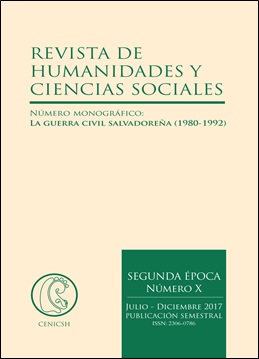The hidden history of EDUCO and its unknown results: connections between EDUCO, community empowerment and the civil war in El Salvador
DOI:
https://doi.org/10.5377/rhcs.v0i10.6615Keywords:
EDUCO, USAID, World Bank, community based management, civil warAbstract
The “Education with Community Participation” (EDUCO) program in El Salvador achieved international fame in the late 1990s and 2000s with its design which formally transferred the ability to hire and fire teachers to a committee of parents at the community level. Despite the significant attention this program has received, there are several key aspects of its trajectory and impact that has been underappreciated. The reconsideration offered in this paper is made possible by revealing the hidden history and the unknown outcomes of EDUCO. As is shown, EDUCO not only emerged before the end of the civil war, thanks to the political activity of the conservative party (ARENA), but also due to the role of international organizations such as USAID (the United States Agency for International Development), UNESCO (the United Nations Education, Science, and Culture Organization), and the World Bank. Regarding the implementation of the program, the article shows how the practical operation of the program was characterized by many limitations and numerous negative side effects. The analysis offers a reinterpretation of EDUCO which is valuable because it encourages us to think anew about the enduring relationship among education, community development, and civil war.
Revista de Humanidades y Ciencias Sociales, n° 10, july-december 2017: 13-57
Downloads
1942

